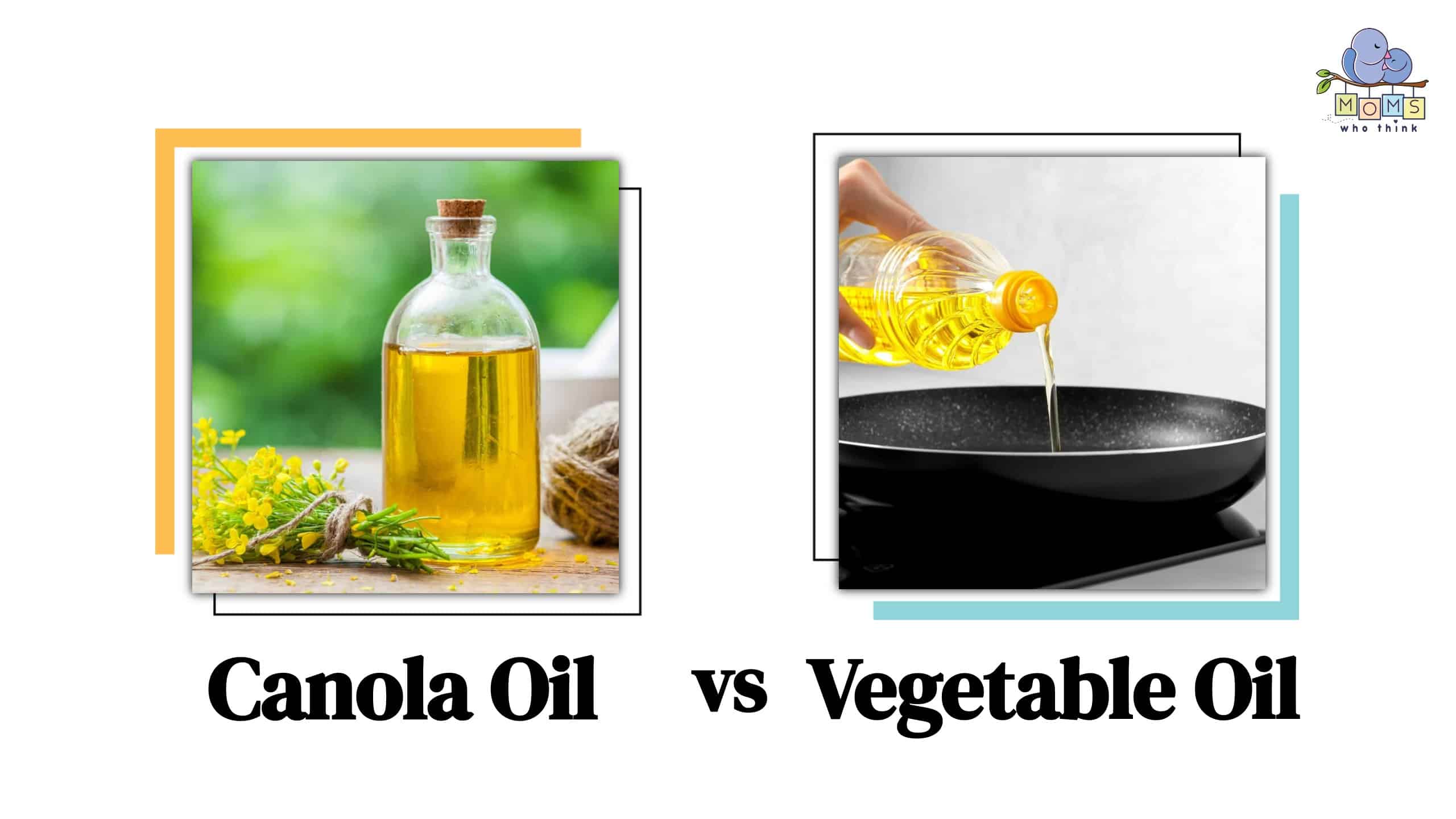So here’s the deal, folks. You’re standing in your kitchen ready to whip up something delicious, but oh no, you just realized you’re out of vegetable oil. Panic sets in, but wait—there’s a bottle of canola oil sitting right there on the counter. Can you substitute canola oil for vegetable oil for baking? The short answer is YES, but let’s break it down because this is more than just a simple swap. Stick with me, and we’ll get to the bottom of this baking mystery.
Baking can be both an art and a science, and when it comes to substituting ingredients, you want to make sure you’re not compromising flavor or texture. Vegetable oil is often the go-to for many recipes because of its neutral taste and versatility, but canola oil is not far behind. Both oils bring something to the table, and understanding their differences can help you make an informed decision.
Before we dive deeper, let’s talk about why this substitution matters. Whether you’re a seasoned baker or just starting out, knowing what works and what doesn’t can save you a trip to the store and keep your recipe on track. So buckle up, because we’re about to uncover the truth behind canola oil vs. vegetable oil in baking.
What’s the Deal with Vegetable Oil Anyway?
Vegetable oil is kind of like the Swiss Army knife of oils in the kitchen. It’s made from a blend of plant-based oils, often including soybean, corn, or sunflower oil. What makes it so popular is its neutral flavor and high smoke point, which means it doesn’t burn easily even at higher temperatures. In baking, it’s often used to add moisture and tenderness to cakes, muffins, and other goodies without overpowering the other flavors in the recipe.
But here’s the kicker—“vegetable oil” is actually a generic term. Depending on where you live, the blend might vary slightly, but the end result is pretty much the same. It’s a dependable choice for most recipes, but what happens when you don’t have it on hand? That’s where canola oil comes into play.
Canola Oil: The Underdog with a Punch
Canola oil has been quietly stepping into the spotlight over the years, and for good reason. Derived from the canola plant, which is a type of rapeseed, this oil is known for its health benefits and mild flavor. Like vegetable oil, it has a high smoke point, making it suitable for both cooking and baking. Plus, it’s packed with heart-healthy omega-3 fatty acids, which is a win-win if you’re looking to bake with a bit of a nutritional edge.
But can it really stand up to vegetable oil in baking? The answer is a resounding yes. Canola oil’s neutral taste makes it an excellent substitute, and in some cases, it might even enhance the final product. We’ll explore that a bit more later, but for now, just know that canola oil is more than just a backup option—it’s a contender.
Why Would You Substitute Canola Oil for Vegetable Oil?
Let’s face it, life happens, and sometimes you just don’t have the exact ingredient your recipe calls for. Whether you’re out of vegetable oil or you’re trying to make a healthier choice, substituting canola oil is a no-brainer. Here are a few reasons why you might consider making the switch:
- Availability: Canola oil is widely available and often cheaper than some other specialty oils.
- Health Benefits: It’s lower in saturated fats and higher in omega-3s, making it a healthier alternative for those who are watching their diet.
- Flavor Profile: Its mild taste won’t overpower your baked goods, ensuring the other flavors in your recipe shine through.
- Versatility: Canola oil works just as well in cakes, brownies, and even savory dishes like roasted veggies.
How Does Canola Oil Affect Baking?
When it comes to baking, texture and flavor are everything. So how does swapping vegetable oil for canola oil impact your final product? In most cases, the difference is negligible. Both oils provide the same level of moisture and tenderness, so your cake or muffins won’t suffer from the substitution.
However, there are a few things to keep in mind. Canola oil tends to have a slightly thinner consistency than some vegetable oil blends, which might affect the batter’s thickness. But don’t worry—this difference is so minor that most people won’t even notice it. Plus, the end result will still be soft, moist, and delicious.
Pro Tip: Experiment with Ratios
If you’re feeling adventurous, try experimenting with the ratio of oils in your recipe. For example, you could use half canola oil and half melted butter for a richer flavor. This works especially well in recipes like chocolate cakes or brownies, where a little extra richness can take things to the next level.
When Should You Avoid Using Canola Oil?
While canola oil is a great substitute for vegetable oil in most cases, there are a few instances where it might not be the best choice. For example, if your recipe calls for a specific type of oil with a distinct flavor, such as olive oil or coconut oil, canola oil might not be the right fit. Additionally, if you’re baking for someone with a canola allergy, you’ll need to find another alternative.
Another consideration is the nutritional profile. While canola oil is generally considered healthy, some people prefer to avoid it due to concerns about genetically modified organisms (GMOs). If this is a concern for you, look for organic or non-GMO options when shopping for canola oil.
What About Other Oil Substitutes?
If you’re out of both vegetable oil and canola oil, don’t panic! There are plenty of other oils you can use in a pinch. Here are a few options to consider:
- Olive Oil: Great for savory dishes, but use it sparingly in sweet recipes as it can add a subtle fruity flavor.
- Coconut Oil: Adds a tropical twist to baked goods, but make sure it’s melted and unsweetened to avoid altering the recipe.
- Avocado Oil: Neutral in flavor and high in healthy fats, making it a great choice for healthier baking.
- Melted Butter: Adds richness and depth, but keep in mind it will change the texture slightly.
Remember, the key is to choose an oil that complements the flavors in your recipe while maintaining the desired texture. Experimentation is half the fun of baking, so don’t be afraid to try new things!
Can You Substitute Canola Oil for Vegetable Oil in All Recipes?
Short answer: Yes, but with a caveat. Canola oil works beautifully in most baking recipes, but there are a few exceptions. For example, if your recipe calls for a specific type of oil with a distinct flavor, such as peanut oil or sesame oil, canola oil might not be the best substitute. Additionally, if you’re baking for someone with dietary restrictions, make sure the oil you choose aligns with their needs.
That said, for the vast majority of recipes, canola oil is a reliable and versatile option. Whether you’re making a batch of chocolate chip cookies or a moist banana bread, you can confidently swap in canola oil without worrying about the outcome.
Real-Life Example: Banana Bread
Let’s say you’re making banana bread, and the recipe calls for vegetable oil. You can easily substitute canola oil without any noticeable difference in the final product. In fact, some bakers swear by canola oil for banana bread because it enhances the natural sweetness of the bananas while keeping the bread moist and tender.
Health Benefits of Canola Oil in Baking
One of the biggest advantages of using canola oil in baking is its health benefits. Compared to other oils, canola oil is lower in saturated fats and higher in omega-3 fatty acids, which are essential for heart health. It’s also rich in vitamin E, an antioxidant that helps protect your cells from damage.
But here’s the thing—just because canola oil is healthier doesn’t mean you can go wild with it. Moderation is key, and it’s always a good idea to balance your intake of fats with other nutrients. That being said, using canola oil in your baking is a small step toward making healthier choices without sacrificing flavor or texture.
Expert Tips for Baking with Canola Oil
Now that you know canola oil is a great substitute for vegetable oil, here are a few expert tips to help you get the best results:
- Measure Carefully: Use a liquid measuring cup to ensure accuracy when measuring oil. Too much or too little can affect the texture of your baked goods.
- Store Properly: Keep your canola oil in a cool, dark place to prevent it from going rancid. Once opened, it’s best to use it within a few months.
- Experiment with Flavors: Try adding a drop of vanilla extract or a pinch of cinnamon to your batter for an extra boost of flavor.
- Don’t Overmix: Overmixing your batter can lead to tough, dense baked goods. Mix until just combined for the best results.
By following these tips, you’ll be well on your way to creating delicious baked goods that rival anything you’d find in a bakery.
Conclusion: Can You Substitute Canola Oil for Vegetable Oil for Baking?
Yes, you absolutely can! Canola oil is a fantastic substitute for vegetable oil in most baking recipes, offering a neutral flavor, high smoke point, and added health benefits. Whether you’re out of vegetable oil or simply looking to make a healthier choice, canola oil is a reliable and versatile option that won’t let you down.
So the next time you’re in a pinch, don’t stress. Grab that bottle of canola oil and get baking. And remember, baking is all about experimentation and having fun, so don’t be afraid to try new things and make your recipes your own.
Now it’s your turn! Have you tried substituting canola oil for vegetable oil in your baking? Share your experiences in the comments below, and don’t forget to check out our other articles for more baking tips and tricks. Happy baking, folks!
Table of Contents
- What’s the Deal with Vegetable Oil Anyway?
- Canola Oil: The Underdog with a Punch
- Why Would You Substitute Canola Oil for Vegetable Oil?
- How Does Canola Oil Affect Baking?
- Pro Tip: Experiment with Ratios
- When Should You Avoid Using Canola Oil?
- What About Other Oil Substitutes?
- Can You Substitute Canola Oil for Vegetable Oil in All Recipes?
- Real-Life Example: Banana Bread
- Health Benefits of Canola Oil in Baking
- Expert Tips for Baking with Canola Oil
- Conclusion: Can You Substitute Canola Oil for Vegetable Oil for Baking?


